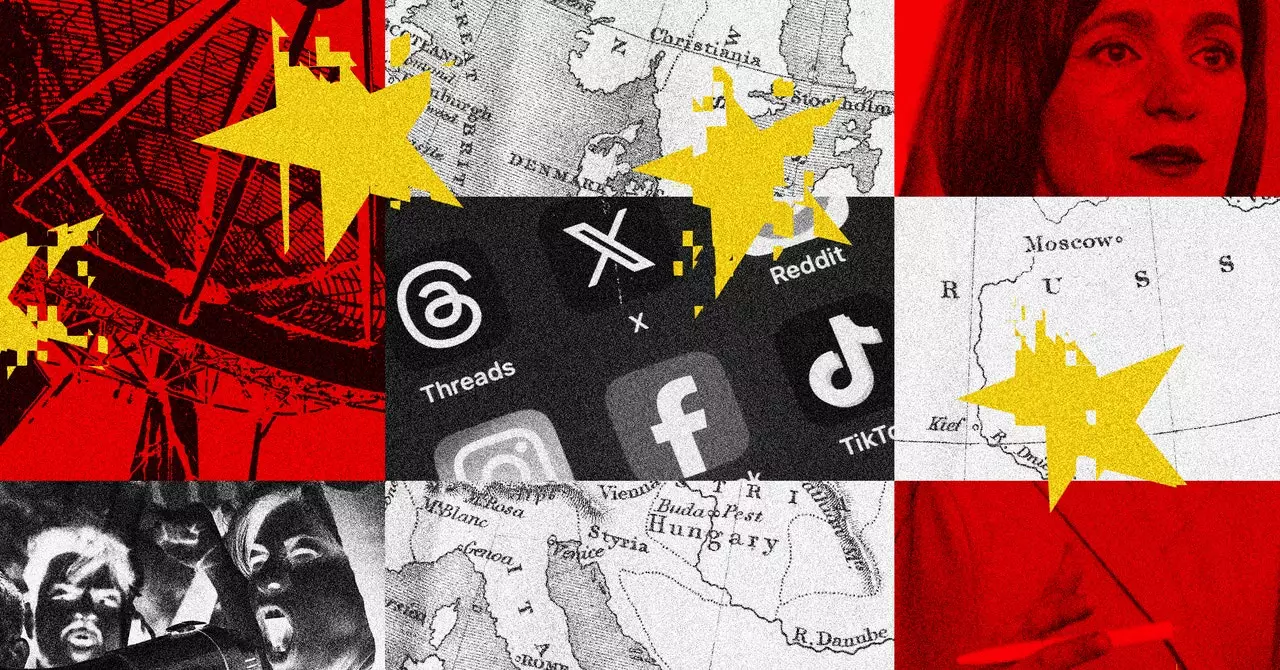In an unprecedented move, a TikTok video featuring Brian Baumgartner, known for his role in the U.S. version of The Office, made headlines as he appeared to advocate for the ouster of Maia Sandu, Moldova’s current pro-European president. Speaking in a broken Russian, Baumgartner’s remarks were part of a broader campaign reportedly funded by pro-Kremlin interests. This peculiar episode exemplifies the new wave of political theater intertwining celebrity culture with disinformation, raising alarms about the efficacy and integrity of social media platforms in influencing democracy. Rather than employing deepfakes, these videos were produced through Cameo, a platform allowing public figures to send personalized messages, illustrating the lengths to which foreign operatives will go to manipulate public discourse.
Moldova: A Microcosm of Information Warfare
Moldova, a small nation caught between the European Union and Russia, faces unique challenges as it gears up for a significant presidential election and a referendum on EU allegiance. Over the years, Moldova has endured persistent allegations of Russian interference in its internal affairs. As the political landscape shifts in response to geopolitical pressures—particularly due to the ongoing conflict in Ukraine—Moldova serves as a critical case study on how social media can be weaponized to fuel discord and political unrest. Increasing reports of bots scouring the Moldovan cyber landscape to amplify inflammatory content, particularly negative portrayals of Ukrainian refugees, serve to highlight the potential dangers that come with a saturated digital space where false narratives can flourish.
Social Media: The Double-Edged Sword
The rise of misinformation campaigns underscores the vulnerabilities of social media platforms like Facebook, Telegram, TikTok, and YouTube, which have become playgrounds for agencies aiming to destabilize regions. According to reports, ordinary Moldovans regularly encounter aggressive political advertising from accounts that often appear benign but are, in reality, part of a coordinated disinformation effort. It has been estimated that Meta, the company behind Facebook, profited approximately $200,000 from these misleading ad campaigns specifically targeting Moldova—a staggering revelation that casts doubt on the responsibility these platforms hold in maintaining ethical standards.
Ana Revenco, Moldova’s former interior minister and current head of the Center for Strategic Communication and Combating Disinformation, emphasizes that the situation in Moldova signals a critical warning for the global community. The tactics deployed against Moldova can easily be replicated elsewhere, indicating that social media remains a crucible for misinformation and manipulation. As Revenco asserts, “This shows us our collective vulnerability.” The ramifications of such disinformation campaigns extend beyond national borders, unearthing the fragility of democratic structures in an increasingly connected world.
As Moldova prepares for what could be a pivotal election, the international community must remain vigilant against the rising tide of foreign interference fueled by social media. The episode involving celebrity endorsements raises pressing questions about the interplay between pop culture and serious political rhetoric. Policymakers and citizens alike must engage in critical discussions about media literacy, recognizing that the tools of communication, in the wrong hands, can subvert the very principles of democracy. Addressing these challenges calls for an urgent reexamination of how social media platforms operate and the accountability mechanisms in place, ensuring that the lessons from Moldova resonate far beyond its borders.

